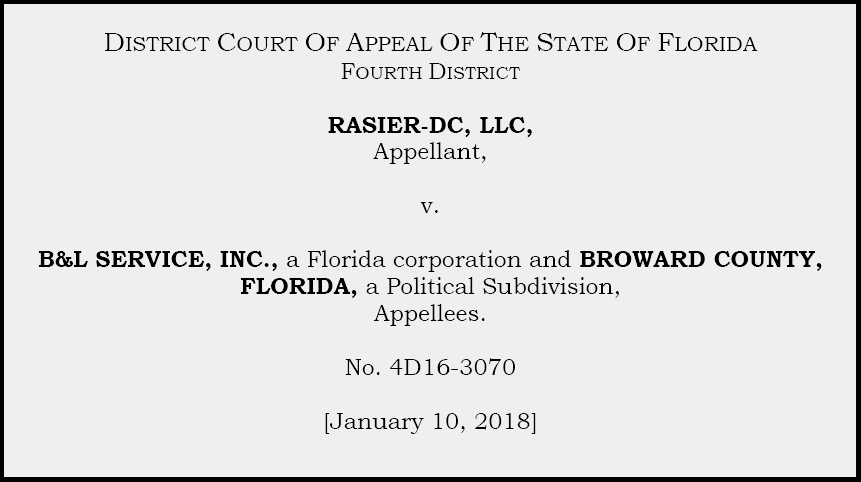No Trade Secret Protection for Uber’s Rider Data
On January 10, 2018, the Florida Fourth District Court of Appeals held that rideshare company Uber (through its subsidiary Raiser LLC), could not claim trade secret protection to prevent the disclosure of its rider data.
 The case resulted from traditional taxicab company, Yellow Cab, seeking public records disclosure from the county. (Yellow Cab in South Florida operates as B&L Service, Inc.) The county initially refused to disclose the requested information to Yellow Cab because its license agreement with Uber required the county to keep certain information provided by Uber to the county confidential. The information that Uber was required to provide to the county, and which the county agreed to keep confidential included:
The case resulted from traditional taxicab company, Yellow Cab, seeking public records disclosure from the county. (Yellow Cab in South Florida operates as B&L Service, Inc.) The county initially refused to disclose the requested information to Yellow Cab because its license agreement with Uber required the county to keep certain information provided by Uber to the county confidential. The information that Uber was required to provide to the county, and which the county agreed to keep confidential included:
- number of pickups and drop offs;
- date and time;
- GPS coordinates; and
- license plate (partial).
Initially, the trial court concluded that all of the Uber data was “protected trade secrets and exempt from disclosure under Florida’s Public Records Act.”
However, after Yellow Cab sought rehearing on its motion to compel disclosure of the records from the county, Judge Sandra Perlman receded from her initial decision and held that the aggregate data—the number of pickups and amount of money paid by Uber to the county—was not protectable as a trade secret. Uber then appealed.
The Fourth DCA agreed that “the total number of pickups and the fees paid . . . do not meet the definition of trade secrets under” Florida’s trade secret statute, 688.002(4), and therefore Uber had no right to prevent the county from disclosing it under Florida’s strong public records disclosure law (called the “sunshine law,” go figure). It further agreed that the information did not “provide an advantage to Yellow Cab or that Uber derives independent economic value from keeping that information secret.”
It further relied on other Florida cases finding that “sales volume, income statements, and gross sales of a corporation are not trade secrets” and also cited to a similar federal case involving another rideshare company, Lyft, and concluded that “revenue is not strategy but rather the result of that strategy.” Cotter v. Lyft, Inc., No. 13-cv-04065-VC, 2016 WL 3654454, at *2 (N.D. Cal. June 23, 2016).
The appellate case is Raiser-DC, LLC v. B&L Serv., Inc., __ So. 3d __ , no. 4D16-3070. (Fla. 4th DCA 2018).
The trial court case number is CACE16-002723.


Leave a Reply